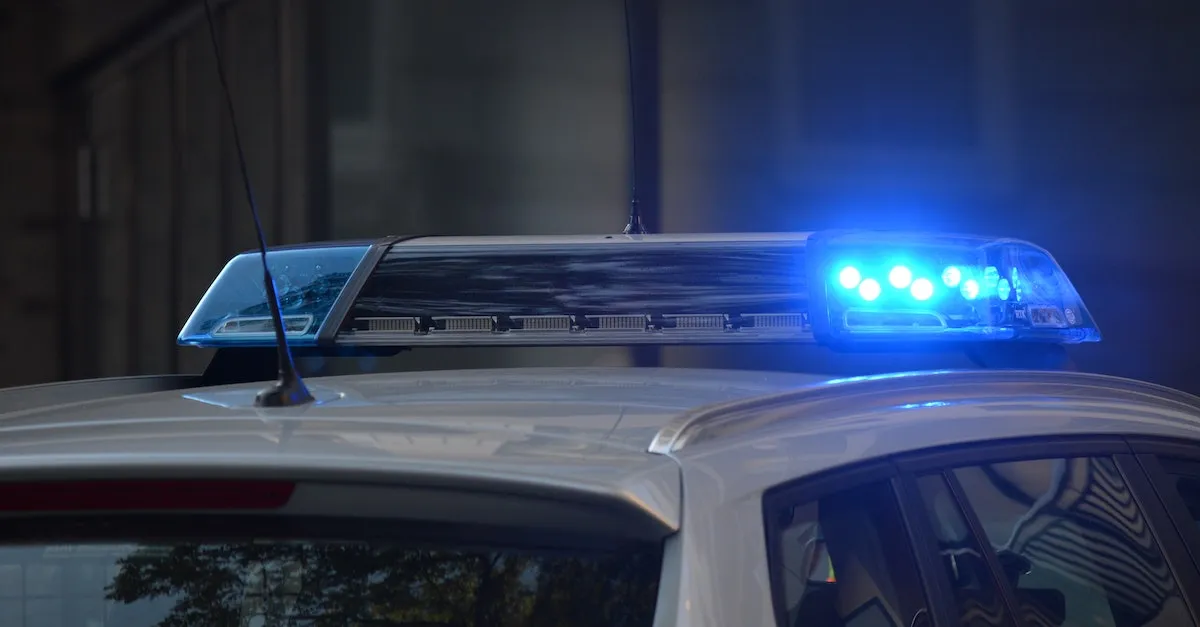Are Police Scanners Legal In Texas?
Police scanners allow listening in on law enforcement communications, but are they actually legal? If you live in Texas and are wondering about the legality of owning a scanner, read on.
If you’re short on time, here’s a quick answer: In most cases, it is legal to own and operate a police scanner in Texas.
This article will cover Texas laws related to scanner ownership, exceptions like for people with criminal records, how scanners can be used legally, and consequences for illegal use.
Texas Laws Allow Private Scanner Ownership
No state law prohibits general public from owning
Good news for scanner enthusiasts in Texas! The Lone Star State has no state law that prohibits the general public from owning police scanners. This means that residents of Texas are free to purchase and possess these devices without any legal restrictions.
Whether you’re a hobbyist looking to stay informed about local law enforcement activity or a concerned citizen who wants to monitor emergency broadcasts, owning a police scanner in Texas is completely legal.
With a police scanner, you can tune into frequencies used by emergency services, including police, fire departments, and paramedics. This allows you to listen in on live communications and stay updated on what’s happening in your community.
It can be a fascinating and educational tool for those interested in law enforcement or emergency response.
However, it’s important to note that while owning a police scanner is legal, there are laws regarding the use of scanner frequencies. It is illegal to use a police scanner to aid in the commission of a crime or to interfere with emergency communications.
It’s crucial to respect the privacy of individuals involved in emergency situations and to use your scanner responsibly.
Federal law places no restrictions within Texas
In addition to the absence of state laws restricting scanner ownership, federal law also places no specific restrictions on owning police scanners in Texas. This means that residents of Texas are not subject to any federal regulations that would prevent them from owning or using police scanners.
It’s worth noting that while Texas allows private ownership of police scanners, other states may have different laws and restrictions. Before traveling outside of Texas with your scanner, it’s essential to research and familiarize yourself with the laws of the state you’re visiting.
Some states may require permits or licenses to own or operate a police scanner.
If you’re interested in purchasing a police scanner in Texas, there are numerous options available both online and in physical stores. You can choose from handheld scanners, desktop models, or even mobile apps that transform your smartphone into a scanner.
It’s a good idea to do some research and read reviews to find the scanner that best fits your needs and budget.
For more information about police scanner laws in Texas, you can visit the official website of the Texas Department of Public Safety at https://www.dps.texas.gov/. They provide comprehensive information on various laws and regulations related to public safety in the state.
Exceptions to Scanner Ownership Rights
Convicted felons may be prohibited
In the state of Texas, there are certain exceptions to the ownership rights of police scanners. One such exception applies to convicted felons. According to Texas law, individuals who have been convicted of certain crimes may be prohibited from owning or operating police scanners.
This restriction is in place to ensure public safety and prevent any potential misuse of the scanners by individuals with a criminal background. If you are a convicted felon, it is important to familiarize yourself with the specific laws regarding scanner ownership in your area.
Restraining orders can restrict access
Another exception to the ownership rights of police scanners in Texas is the presence of a restraining order. If an individual is subject to a restraining order, they may be prohibited from owning or using a police scanner.
This restriction is put in place to protect the safety and privacy of the person who has obtained the restraining order. It is important to note that violating a restraining order can result in serious legal consequences.
If you are under a restraining order, it is crucial to abide by its terms and refrain from using a police scanner if it is included in the restrictions.
Legal and Responsible Scanner Usage
Police scanners can be a fascinating tool for those interested in staying informed about law enforcement activities. However, it is important to understand the legality and responsibility that comes with using a police scanner in Texas.
While police scanners are legal to own and use in the state, there are certain guidelines and restrictions that must be followed to ensure responsible usage.
Listening to officers’ safety not recommended
Although it may be tempting to tune in to police frequencies to listen to officers’ conversations, it is important to note that doing so is not recommended. Listening to officers’ safety can compromise their ability to carry out their duties effectively.
It is crucial to respect the privacy and safety of law enforcement officers by refraining from eavesdropping on their communications.
Police officers rely on secure communication channels to coordinate their efforts and ensure public safety. By avoiding the temptation to listen in on their conversations, we can contribute to a safer environment for both officers and the community they serve.
Sharing overheard information prohibited
Another important aspect of responsible scanner usage is understanding that sharing overheard information from police scanners is prohibited. This means that even if you come across valuable information about ongoing police operations or incidents, it is illegal to share that information with others.
The reason behind this restriction is to prevent the dissemination of sensitive information that could potentially jeopardize ongoing investigations or put law enforcement officers at risk. It is essential to remember that the work of the police is not a form of entertainment, and sharing overheard information can have serious consequences.
Consequences of Scanner Misuse
While police scanners can be a valuable tool for staying informed about law enforcement activities, their misuse can have serious consequences. It is important to understand the legal implications of using a scanner inappropriately, especially in the state of Texas.
Spreading sensitive info can lead to charges
One of the potential consequences of scanner misuse is the spreading of sensitive information. Broadcasting or sharing sensitive police communications can not only compromise ongoing investigations but also put the safety of officers and the public at risk.
In Texas, knowingly disseminating confidential information obtained through a police scanner can result in criminal charges of obstruction of justice or aiding and abetting. These charges can carry severe penalties, including fines and even imprisonment.
It is crucial to remember that law enforcement agencies use scanners for operational purposes, and unauthorized dissemination of their communications can hinder their ability to carry out their duties effectively.
Therefore, it is essential to use scanners responsibly and avoid sharing sensitive information with unauthorized individuals or on public platforms.
Helping criminals evade police is illegal
Another serious consequence of scanner misuse is the potential for aiding criminals in evading law enforcement. Broadcasting police activities in real-time can give criminals a significant advantage by alerting them to the presence and movements of law enforcement officers.
In Texas, actively assisting or facilitating the escape of a criminal can result in charges of accessory after the fact or obstruction of justice.
It is important to note that while police scanners are legal to own and use in Texas, using them to aid or abet criminal activity is strictly prohibited. The misuse of scanners in this manner can have severe legal repercussions and undermine the efforts of law enforcement in maintaining public safety and upholding the law.
Conclusion
Police scanners are generally legal for Texas residents to own and operate. However, there are some exceptions based on criminal history, and the devices must be used responsibly.
In summary, owning a scanner is allowed in most cases but be sure to use it legally and not to interfere with law enforcement operations.








